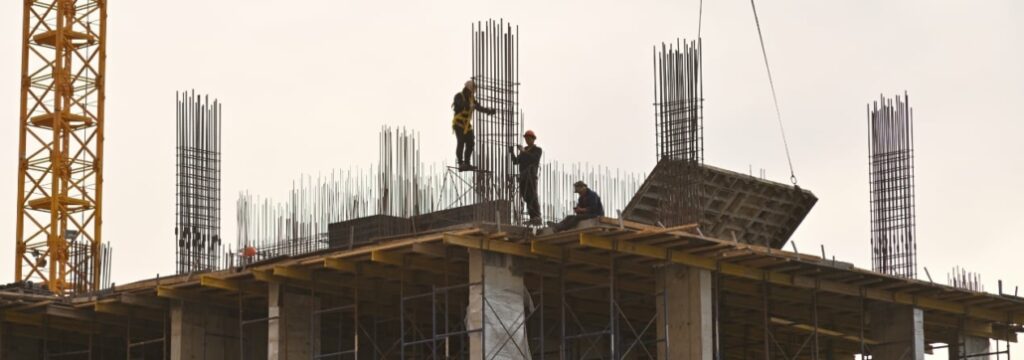Os produtos de PRFV estão em constante expansão de aplicações e mercados devido às suas excelentes propriedades. O desempenho funcional aprimorado dos polímeros reforçados com fibras em comparação ao aço, principalmente a resistência à corrosão e térmica, a durabilidade, a alta resistência à tração e o baixo peso, ampliou significativamente as aplicações dos produtos de PRFV.
A instalação mais rápida e os menores custos de transporte e manutenção do compósito de PRFV resultaram em maior demanda por produtos de PRFV. No entanto, a sustentabilidade do processo de fabricação e os produtos finais representam uma preocupação significativa em uma sociedade global.
Com o mundo se tornando mais verde e apresentando novos desafios para o setor de manufatura, um dos principais aspectos de qualquer negócio é seu impacto ambiental e sua capacidade de se integrar à sociedade, à economia e ao meio ambiente.
Inicialmente, a produção por pultrusão de polímeros reforçados com fibras foi desenvolvida para oferecer alternativas duráveis e econômicas aos materiais de construção existentes. Apreciados por sua leveza e, portanto, menores custos de transporte e instalação, os produtos de PRFV também comprovaram sua superioridade em propriedades físicas.
PRFV e Sustentabilidade
A vida útil mais longa com base nas propriedades de resistência à corrosão e a produtos químicos dos produtos GFRP significa que os produtos não devem ser substituídos com frequência, o que desempenha um papel vital no meio ambiente.
Sendo imune a reações térmicas, químicas e de corrosão, o compósito de PRFV não requer manutenção e substituição que consomem muita energia. Em termos de sustentabilidade, a fabricação de vergalhões de PRFV tem um impacto ambiental muito menor do que a produção de materiais tradicionais, devido à menor necessidade de energia e à menor produção de gases de efeito estufa.
Apesar dos dados confirmados de que os materiais compósitos de PRFV são mais ecológicos em comparação com a produção de concreto, alumínio e aço, as pesquisas em andamento aprofundam o potencial de reciclagem dos PRFV. Foi comprovado que a reciclagem de compósitos de PRFV é mais ecológica em comparação com a de aço e alumínio em termos de consumo de energia, água e emissão de ar.
Versáteis em suas propriedades e aplicações (aeroespacial, engenharia industrial e civil, agricultura, tratamento de água, indústrias química e farmacêutica), os produtos de PRFV demonstram melhor desempenho em todos os principais indicadores ambientais, incluindo toxicidade humana, destruição da camada de ozônio, eutrofização da água doce e emissões de mudanças climáticas, sendo inferiores em 78%, 40%, 85% e 38%, respectivamente, em comparação aos produtos de aço. Além disso, as barras de PRFV apresentaram níveis de emissão de CO2 menores (cerca de 40%) em comparação às barras de aço.
Um estudo recente comparou construções de pontes com vergalhões de FRP e compostos tradicionais de concreto reforçado em termos de impacto ambiental. Como resultado, as pontes com tabuleiro de FRP apresentaram emissões de carbono cerca de 20% menores em comparação com as estruturas de pontes convencionais. No geral, os pesquisadores concluíram que as pontes de FRP requerem o dobro de energia em comparação com suas alternativas tradicionais. [Zhang Y., Huang T, et al., Avaliação Ambiental de Vigas de Concreto Reforçadas com Polímero Reforçado com Fibra, 2020]
Embora as vantagens ambientais dos produtos e da fabricação de PRFV sejam óbvias, os participantes do setor garantem continuamente que as técnicas de produção empregadas estejam em total conformidade com os padrões éticos e ecológicos. Portanto, todos os processos industriais avançados passam por testes regulares de emissões atmosféricas e do solo. Além disso, o setor manufatureiro continua descobrindo capacidades avançadas de PRFV e aprimorando métodos de descarte e reciclagem.
Compromisso de sustentabilidade da Composite-Tech
A Composite-Tech convida você a lançar um projeto de alto rendimento Linha de produção de vergalhões de GFRP negócios. Confiáveis e energeticamente eficientes, nossas linhas de produção ajudarão a garantir um nicho neste setor em rápido crescimento.
Em Composite-Tech, nos esforçamos para reduzir a emissão de carbono e manter a fabricação sustentável de FRP para reduzir a pegada ambiental. Comprometidos com a melhoria contínua da sustentabilidade dos compósitos de FRP, realizamos avaliações contínuas do ciclo de produção e das aplicações dos produtos para garantir um menor impacto ambiental em uma gama mais ampla de setores.
Produtos de FRP são de fato uma economia de recursos, dinheiro e tempo em comparação aos materiais de construção convencionais.
Saber mais:

